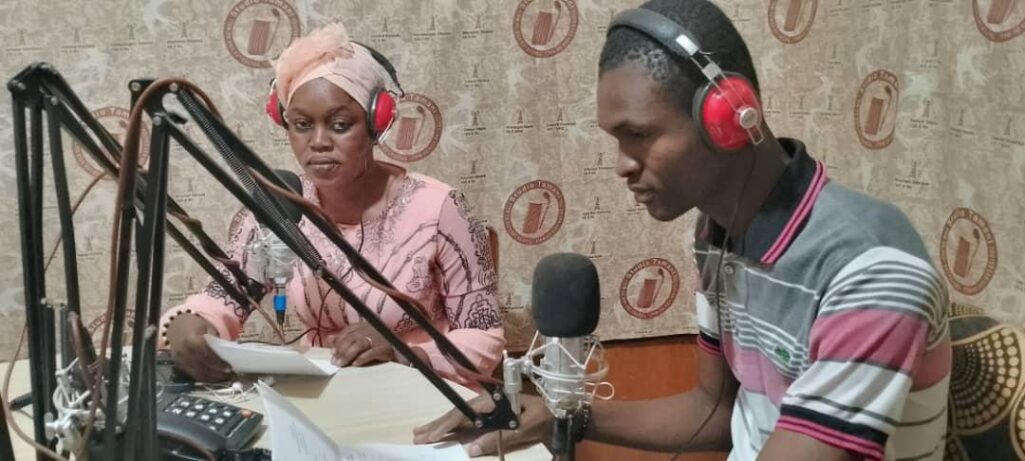Since 1992, Radio Kénédougou has been a driving force for rural development in Mali’s Sikasso region. With a strong commitment to gender equality, it serves over 400,000 residents within 100 km of the station.
The station’s program Ladamou Blon is the runner-up for the 2024 Liz Hughes Award for Her Farm Radio. This award recognizes exceptional radio programs that serve women listeners. The programs are celebrated for advancing gender equality, whether through presenting women’s experiences and views, tackling subjects important to women, or emphasizing the contribution of men in achieving gender equality.
With programs in Bambara, Sénoufo, French, Peulh, and Samogo, Radio Kénédougou covers a wide range of topics, from societal issues and education to health and governance. Since 2021, a partnership with Farm Radio International on the “HÉRÈ – Women’s Well-Being in Mali” project has helped improve its programming. This project focuses on enhancing the sexual and reproductive health and well-being of women and girls and strengthening efforts to prevent and respond to gender-based violence in Sikasso, Ségou, Mopti, and Bamako districts. Through this collaboration, Radio Kénédougou has not only improved the quality of its broadcasts, but also developed the skills to tackle and discuss sensitive issues like sexual health with increased confidence and sensitivity.
The award-winning program focuses on women’s well-being. The production team, led by station manager Daouda Mariko and program manager Lassine Doumbia, includes male host Kone Boh, female host Djénèbou Sangare, and technician Hamadoun Kone. The program targets a broad audience, including men, women, youth, heads of families, and various authorities. Addressing gender equality, it explores family planning and women’s rights, and challenges stereotypes.
Crafted with a gender-sensitive approach, the program prioritizes equitable representation. This includes ensuring a balanced involvement of individuals regardless of gender, age, cultural background, or socio-economic status, with a special focus on ensuring women’s contributions are central, especially in the planning stages of each episode.
Farm Radio’s Uliza poll plays a crucial role in engaging audiences at the station by collecting listener feedback and questions to directly tackle community issues. Narrative reports complement these interactions by offering in-depth insights into the program’s effect on individuals and the broader community.
Positive feedback from the station’s audience highlights the deep interest and appreciation for the program’s role in informing and educating the community. This has led to significant outcomes, including enhanced family and community harmony, particularly in making family planning decisions. By integrating narrative reports and the Uliza poll towards the end of the production process, the program stays closely connected to its audience’s actual experiences and needs. This approach highlights its commitment to encouraging well-informed decisions and positive changes in behaviour.
Farm Radio International (FRI) is a Canadian non-profit organization specializing in ICT-enabled extension and communication for reaching rural and remote communities at scale in local languages in sub-Saharan Africa. FRI’s core expertise is collaborative, user-focused co-creation of quality information and advisory services, combining radio and mobile phones, other ICTs and face-to-face interaction.

